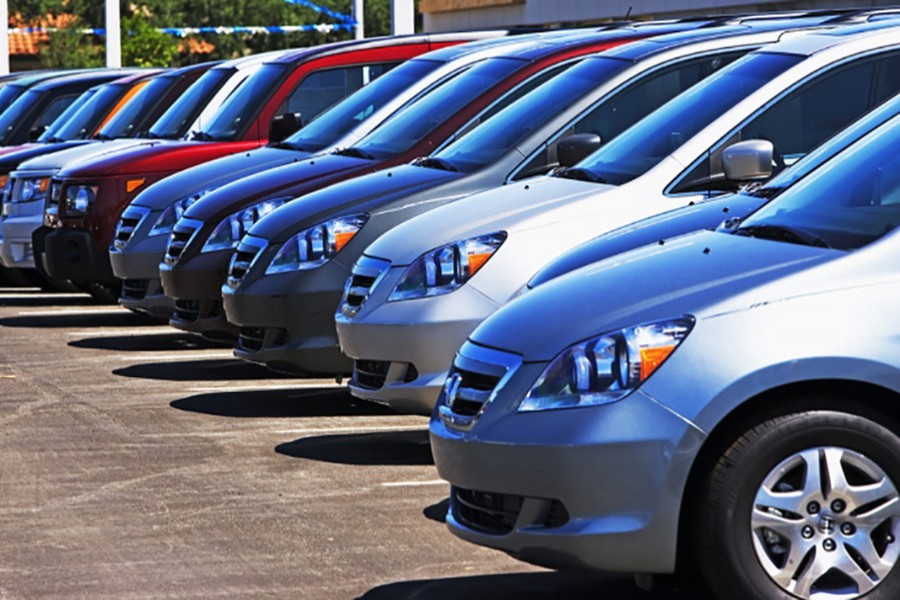Bangladesh Reconditioned Vehicles Importers and Dealers Association (BARVIDA) on Wednesday demanded measures for expansion of car market, and increasing the government’s tax collection by rationalising the import duty on reconditioned vehicles and new cars.
Leaders of the BARVIDA placed the demands at a virtual press conference held from its Bijoynagar office, reports UNB.
Putting emphasis on the stability in the already-established reconditioned car industry, they said with the current perspective, the country needs a realistic, progressive and implementable policy so that a real automotive manufacturing industry is established which will also guarantee the protection of a stability in the years-long business of import of reconditioned vehicles.
Moreover, it is very important to reduce the discrimination in tariff in import of reconditioned cars and new ones for a greater interest of the market expansion of the cars in the country, said the BARVIDA leaders.
They said the government can collect huge revenue from the higher sales of cars among the growing middle-income consumers during the period of the country’s graduation to a developing nation from the list of least developed countries (LDC).
Addressing the conference, BARVIDA president Abdul Haque welcomed the government’s initiative of formulation of ‘Automotive Industrial Development Policy 2020’ adding that the production of the proposed ‘Made in Bangladesh’ or ‘National Car’ branded motor cars in Bangladesh would be a pride for BARVIDA.
But it needs to consider the current situation of the sector concerned, experiences of other countries and realities of the country before establishment of any new industry, he said.
In this case, the BARVIDA leaders suggested the protection of the four-decade import business of the reconditioned vehicle industry, said a press release.
They also suggested the government to assess the impacts and effectiveness of automotive industrial policy by an independent and credible international agency.
The leaders said the local business of imported reconditioned vehicles was established with the investment of millions of taka, which has created employments for over one lakh people directly or indirectly. The sector has been contributing to the economy paying millions of taka as revenue to the national exchequer every year.
Noting that the environment-friendly cars produced in Japan with resale value are the first choice by the local customers, they said the BARVIDA is concerned whether any screw driving industry is going to be established in the name of setting up the country's own car making plant denying the customers’ choice.
Referring to a recent survey of the Japan International Cooperation Agency (JICA), the BARVIDA president said it is feasible to establish the country’s own car making plant, if one lakh pieces of car are sold in the domestic market of Bangladesh in a year.
However, in the domestic market of Bangladesh some 10,000 units to 20,000 unit cars are sold in a year, he said.
“So, the government needs to take measures to expand the local car markets before going for local production and aiming to export cars. In this case, it is very urgent to remove the discrimination of tariff structures on import of reconditioned cars and locally produced cars,” he said.
In a recent pre-budget meeting with NBR officials, the BARVIDA demanded for increasing the depreciation benefit in import of cars by restructuring the supplementary duties on import of hybrid and fossil fuel driven cars and withdrawal of supplementary duty on import of microbuses, the BARVIDA president said.
The BARVIDA leaders said the import of reconditioned cars declined significantly over the last few years in Bangladesh because of a wide discrimination of duty between on import of reconditioned and new cars. So, the government’s revenue collection from the sector also faced a stumble.
The BARVIDA did not get any loan from the government sponsored stimulus package started one year ago.
The Chattogram port has yet to waive the port demurrage charge that was levied last year by the port authority on the importers even during the general public holidays despite application by the BARVIDA. But the port authority has exempted the tax on container transportation. So, for the revival of the sector from the fallouts of the Covid-19, the BARVIDA wants to see the implementation of their placed proposals in the upcoming national budget for the fiscal 2021-22, the leaders said.
BARVIDA vice president Saiful Islam (Samrat) and secretary general Mohammad Shahidul Islam also spoke on the occasion.


